Writer: Liz Palmer
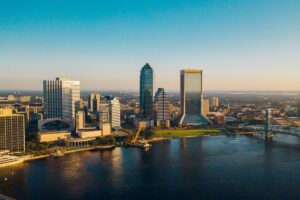 4 min read September 2022 — Industry leaders across Northeast Florida have taken note of growing gaps in workforce, emotional intelligence, technological capabilities and more in their respective sectors. Invest: spoke with some of these leaders to uncover how their priorities are setting the precedent for industry operations and the region in the future.
4 min read September 2022 — Industry leaders across Northeast Florida have taken note of growing gaps in workforce, emotional intelligence, technological capabilities and more in their respective sectors. Invest: spoke with some of these leaders to uncover how their priorities are setting the precedent for industry operations and the region in the future.
Tyler Hodges, President & Head of School, The Bolles School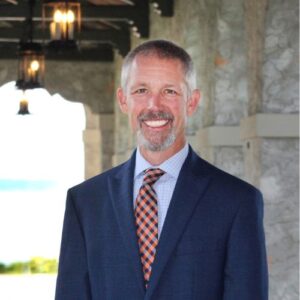
The Bolles School stands on a pillar of philanthropic service integration. When asked how this impacts students, President and Head of School Tyler Hodges said, “Service should anchor everything we do. We call it service leadership, which is recognizing you are part of a larger community and planet. We are sending people out to do volunteer work and our entire freshman class does a service project. The students really make a mark. It is a good reminder that the world isn’t all about you, which is an important message. We have a big focus at Bolles on kindness and citizenship, which we believe help form amazing people that understand the complexity of the world. We need people who are going to be reflective to take on the big challenges.”
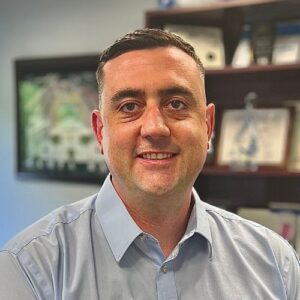 David Yencarelli, COO, American Electrical Contracting
David Yencarelli, COO, American Electrical Contracting
Trade-focused occupations have been dealing with high rates of retirement and low recruiting numbers, affecting efficiencies and service delivery. COO of American Electrical Contracting David Yencarelli saw the missing middle and founded the American Electrical Academy, a nonprofit training program designed to make entering the electrician profession more streamlined and accessible.
“There has been a real challenge in the electrical contracting industry with a lot of the labor force retiring faster than young workers are entering. This is compounded by the fact that it is a sophisticated skilled trade that takes up to two years for new workers to really get the knowledge they need to work on job sites. While the Amazons and McDonalds of the world can train their employees in a few days, contractors need at least a year of just shadowing journeymen and foremen, while getting to know tools and materials,” said Yencarelli.
“It’s hard enough for apprentices to work eight hours a day then commit to a two-hour night class to complete their program, but they’re still not getting that vital hands-on experience to get right into the work. We thought of the American Electrical Academy as a means to create a pipeline of hirable applicants by way of an intensive nine week training program. Students enrolled in the Academy are paired with a licensed electrician who will mentor and guide them through the work. This is a standalone nonprofit and open for anyone interested in getting into the industry. Graduates also receive the Department of Labor’s OSHA 10 safety card which never expires. This provides a great benefit for all employees and communities. It also helps jobseekers in the sector increase their own value and leverage to demand higher wages.”
Bradley Talbert, President & CEO, HCA Florida Memorial Hospital 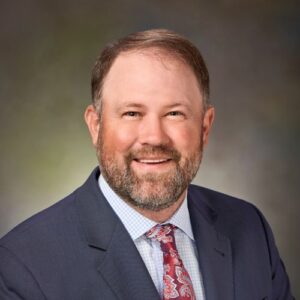
The healthcare industry is in a constant state of evolution, especially in light of the past few years. HCA Florida Memorial Hospital is working to make healthcare more accessible through leveraging technological innovation and investing in new facilities.
“As we look at what we want to be for Jacksonville in the future, our focus is to invest in creating high-acuity services, such as trauma, ECMO, neurosciences, vascular neurosurgery and oncology services. We are focused on the long-term, we have surgery centers, out-patient centers, urgent care and doctors’ offices in our network. Going forward and into the future, sustainability for hospitals will be high acuity service lines because care will continue to drift downstream to less acute settings since they are less invasive and lower cost,” said Talbert.
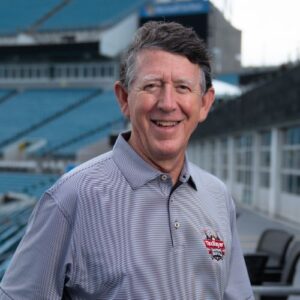 Greg McGarity, President & CEO, Gator Bowl Sports
Greg McGarity, President & CEO, Gator Bowl Sports
President and CEO of Gator Bowl Sports Greg McGarity highlighted the cultural significance of the Gator Bowl to the Jacksonville community and its role in the future of sports entertainment in the region going forward.
“It’s the 78th year for us. For 78 years, it has been the thing to do. The Bowl structure has changed significantly from a time where the Bowls could simply pick who they wanted to play in a game. Now, we are pretty much assigned who will play in our game,” said McGarity. “The city has a very strong presence in the sports and entertainment sector; ASM operates the stadium here, the Jaguars are heavily involved in the concert area and there are a lot of players in town that certainly do great things in so many ways. We all have our areas of focus and our system is very well coordinated in a way that we don’t duplicate services. It’s all about following through on the initiatives we’ve started, and many of those only started in this past year. There’s room for growth and we know what the city and Jaguars ownership are planning in this sports precinct over the next five to 10 years, with the Jaguars’ practice facility on the waterfront, construction of the Four Seasons and office space on the river, for example. It will be dynamic. I’ve heard a lot of individuals predict that this area of town will be unrecognizable in a few years. There are a lot of great things on the horizon and we’re proud to be a part of that.”
